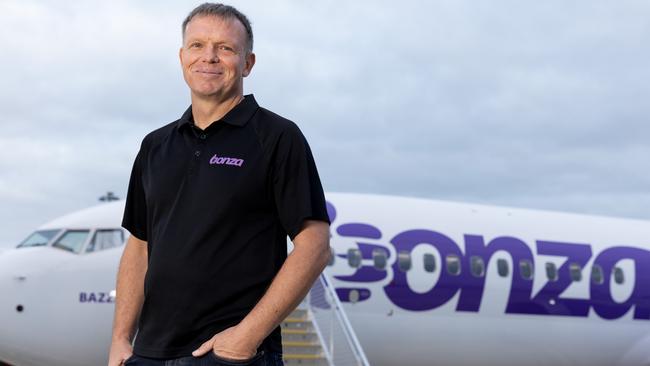Call for inquiry into poor flight reliability after December delays and cancellations
New on-time performance data for December shows thousands of travellers had their flights cancelled or delayed, prompting calls for a Senate inquiry.
Thousands of travellers endured frustrating flight delays and cancellations in December, with more than 2200 services axed in the month, and over a third arriving behind schedule.
Severe weather including tropical cyclone Jasper and Airservices Australia staff shortages were blamed for the poor result, which has prompted calls for an “aviation inquiry”.
Nationals Senator Bridget McKenzie who chaired last year’s inquiry into the Qatar Airways’ decision, said flight cancellations increased by 35 per cent from November to December which was “unacceptably high”.
“322 fewer flights were flown in December to accommodate the holiday plans of Australian families as a result of the surge in cancellations, despite an additional 267 flights being originally scheduled when compared with the previous month,” said Senator McKenzie.
“High airfare prices and the unacceptably high number of flight cancellations and delays demand answers from the Albanese Government, and if it is not prepared to act, we will by seeking to hold an inquiry.”
Budget airline Bonza was the worst offender for flight cancellations, scrapping one in five services.
Bureau of Infrastructure, Transport and Regional Economics data showed Bonza had a cancellation rate of 19.4 per cent in December, after operating 565 of its 701 scheduled flights.
Services between Melbourne and the Gold Coast were the worst affected, with 57 per cent of flights scrapped by Bonza, and 11 per cent on Melbourne-Mildura.
Of the flights Bonza did operate, just over half (55 per cent) arrived on time.
Bonza CEO Tim Jordan said the December cancellations “mostly resulted from well publicised delays in receiving regulatory approval related to aircraft operating out of our new Gold Coast base”.
“When looking at December, if we isolate the Gold Coast performance, our cancellation rate for the remainder of our network was 3.75 per cent,” said Mr Jordan.

Virgin Australia also had a miserable December, cancelling 7.5 per cent of flights or 916 out of 12,183 services scheduled, and landing a mere 54 per cent on time.
A Virgin Australia spokeswoman said it was a “challenging month” due to severe weather along the east coast which caused cancellations on all but eight days of the month.
“Crew resourcing, aircraft maintenance, and air traffic controller shortages also impacted our performance last month,” said the spokeswoman.
“We remain focused on improving our performance and delivering a stable and reliable service to our guests.”
Qantas, on the other hand, saw a significant improvement in on-time performance after two months of finishing behind low fares partner Jetstar.
Only 2.7 per cent of Qantas main line services were cancelled, and 67.8 per cent arrived within 15-minutes of schedule.
In an email to staff, Qantas CEO Vanessa Hudson said given “some really challenging weather and air traffic control shortages, domestic on time performance held up well in December”.
“We still have a long way to go and we need to stay focused, but things are clearly improving,” said Ms Hudson.
Jetstar canned 5.5 per cent of flights, and operated 63 per cent on time.
Rex and SkyTrans were the best of the bunch, with more than 70 per cent of flights departing and arriving to schedule. Rex cancelled a mere 0.6 per cent of flights while SkyTrans, which is based in Cairns, axed 9 per cent.
Senator McKenzie said by Airservices’ own admission, staff shortages were directly responsible for 135 cancelled flights in December, up 62 per cent from November.
“Today’s data shows there is an urgent need for an inquiry into the aviation industry,” she said, adding that the Coalition would seek the support of cross benchers to establish such an inquiry when parliament resumed next month.







To join the conversation, please log in. Don't have an account? Register
Join the conversation, you are commenting as Logout